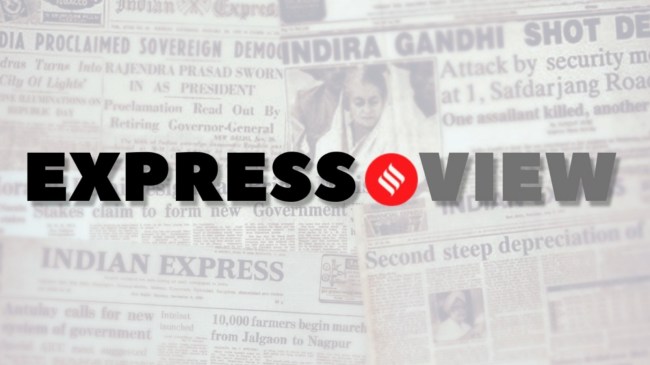Opinion Express View on Jaishankar in Moscow: Not zero-sum
Stability of India-Russia ties points to settling down of Delhi's new great power diplomacy
 India and Russia are not harking back to their old relationship. The context of the bilateral relationship with Russia has fundamentally changed. India is no longer a deferential junior partner looking up to Russia for support.
India and Russia are not harking back to their old relationship. The context of the bilateral relationship with Russia has fundamentally changed. India is no longer a deferential junior partner looking up to Russia for support. Going by the exuberant Indo-Russian bonhomie on display during External Affairs Minister Subrahmanyam Jaishankar’s visit to Moscow this week, it is tempting to view the bilateral relationship in zero-sum terms with other great powers. Jaishankar rightly pointed out that the Indo-Russian relationship has been exceptionally steady amidst oscillations in relations between other major powers. India and Russia have not had any serious bilateral disputes, and their geopolitical interests have often converged on maintaining a stable balance of power in Asia since the middle of the 20th century. Jaishankar’s visit seeks to maintain the intensity of high-level political engagement with the Russian leadership at a time when the annual summits between PM Narendra Modi and President Vladimir Putin could not be convened in the last two years amidst the war in Ukraine.
The absence of annual summits does not mean the relationship has withered. Bilateral commercial economic engagement has surged in the last two years. Bilateral trade has grown from about $12 billion to $50 billion last year, thanks to the massive oil imports from Moscow which could no longer sell oil in its traditional European markets because of sanctions. India came under widespread criticism in the West for not condemning the Russian invasion of Ukraine and for expanding its energy and economic cooperation with Moscow. Delhi withstood those pressures because of the conviction that preserving a productive relationship with Moscow was a critical element of India’s national security strategy. Yet, it is wrong to interpret Jaishankar’s Moscow visit as a major Indian decision to embrace Russia amid presumed setbacks to India’s relationship with the US. That conclusion is wrong since the unfortunate Gurpatwant Singh Pannun episode does not mark a break in the thriving strategic partnership between India and the US. Delhi and Washington are trying to manage the consequences of the Pannun case.
India and Russia are not harking back to their old relationship. The context of the bilateral relationship with Russia has fundamentally changed. India is no longer a deferential junior partner looking up to Russia for support. India’s GDP in 1991 was half that of Russia’s — $270 million to $518 million; India’s economy today is bigger than Russia’s by a large margin — $3.6 trillion to $2.2 trillion. This gap will continue to grow in Delhi’s favour. India is diversifying away from its traditional military dependence on Russia — France and the US have emerged as major arms suppliers to Delhi. India’s commercial and technological relationships are deeply tied to the US, Europe and the UK. A large section of the Indian diaspora resides in the English-speaking world. Delhi will not abandon these consequential ties with the West to please Moscow. India is reconstituting its Russia relationship as an equal. At a time when Delhi’s ties with China are in deep freeze, Moscow’s engagement with Beijing has rapidly expanded. Delhi and Moscow are conscious that they are on opposite sides of the world’s main geopolitical faultline today — between Washington and Beijing. Yet India and Russia value sustaining a sensible bilateral relationship that will expand their room for manoeuvre in the increasingly bipolar world.



